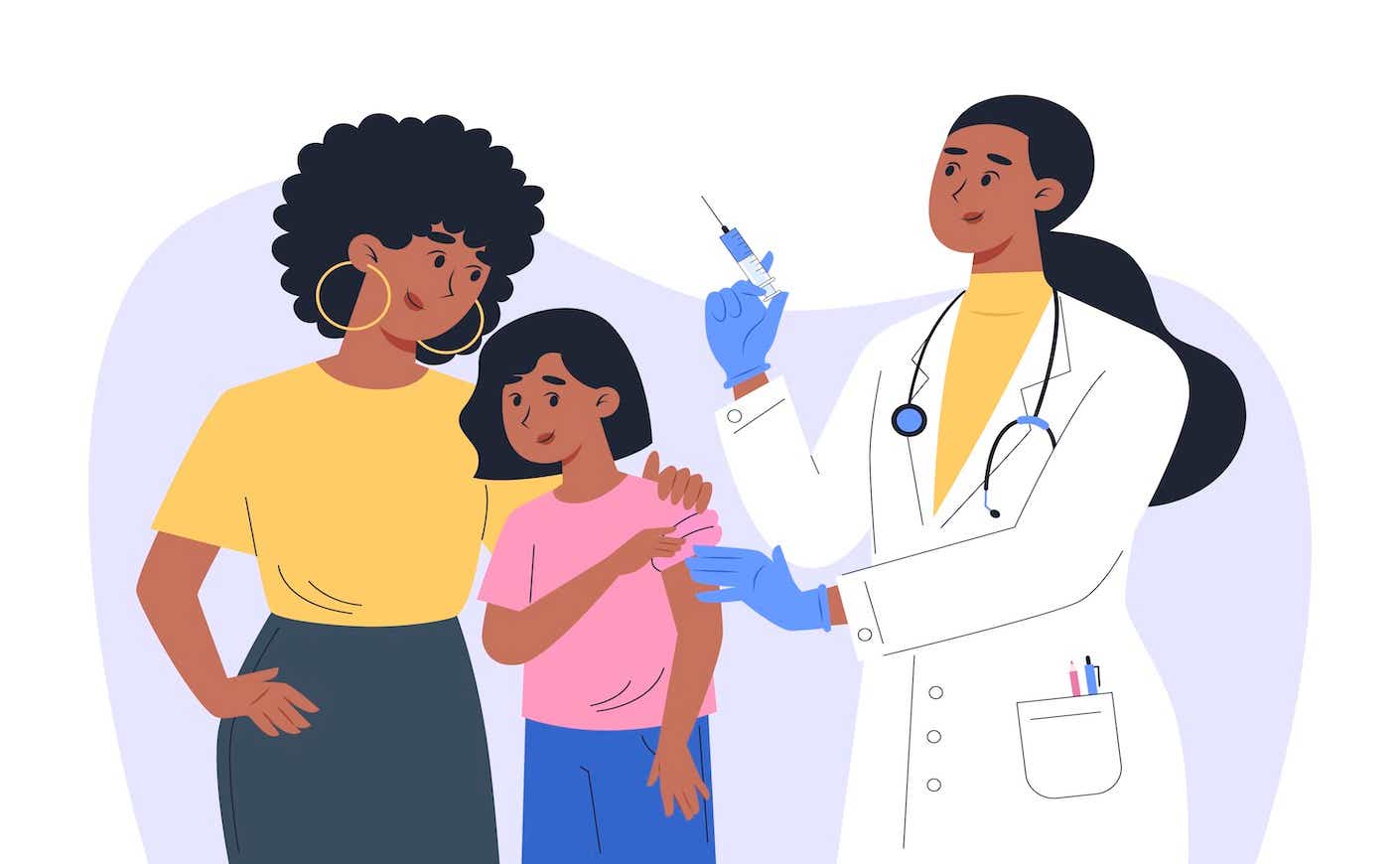With kids now back in school, and the Delta variant fueling a spike in pediatric infections, many parents are on edge — especially those with children under 12.
A Covid-19 vaccine still hasn’t been approved for the under-12 set. But thanks to families nationwide who have made the decision to participate in clinical trials, Pfizer has determined that its vaccine is safe and effective for young children. The company says it plans to apply for FDA approval by the end of September, which means a shot for young children could be available before Halloween!
We spoke to three families about what motivated them to enroll their children in the trials and what the process has been like so far.
Rachel, 10
Miami, Florida
Last year, Yvette Carrión participated in a trial for Johnson & Johnson’s vaccine, while her mother was involved in AstraZeneca’s. So when Carrión’s daughter Rachel learned there was a trial open to children, she was naturally curious, Carrión told us.
Plus, Rachel knew firsthand how dangerous Covid-19 can be. Last year, she was in the ICU for about a week with multisystem inflammatory syndrome in children (MIS-C), a rare condition found in children and teens that can occur after they contract the coronavirus.
“I think that empowered her to be an advocate for herself,” Carrión said.
Carrión and Rachel's father — who sit on opposite ends of the political spectrum — both read extensively about the Moderna trials and the technology behind its vaccine and, with Rachel’s consent, began calling the research facility day after day to try to enroll her. A spot finally opened up for Rachel and on Aug. 10, which happens to be Carrión’s birthday, she received her first dose of either a placebo or Moderna’s vaccine.
“I started crying, it was like the best birthday gift ever,” Carrión said.
Aadil, 18 months
Burlingame, California
Manish Chamoli and Dhanya Nambiar said the decision to enroll their then 18-month-old son Aadil in the Pfizer trial was an easy one to make. Nambiar works in the radiation oncology department at Stanford and had learned that a trial for children ages 6 months to 2 years was being conducted at a facility at the university. She and Chamoli discussed the risks involved and reviewed the data from phase 1 of the study. They decided it was best for their son to take part in the trial — giving him a chance to receive the vaccine and some level of protection from the virus.
“Obviously as parents, we are very concerned about any potential side effects — and there’s always a risk,” she said. “But as scientists, we believe in data.”
They won’t know for certain whether Aadil received the vaccine or a placebo for months, but said that for a few hours after receiving the shots he was a little more irritable and tired than usual.
Chamoli, who works at the Buck Institute for Research on Aging, said they were also happy to do their part to help further study of the vaccine.
“Someone has to do it, and it’s people like us who work in science and know the pros and cons who can really step up,” he said.
Connor, 4, and Jack, 6
Washington, D.C.
Ashley Darcy-Mahoney, a neonatal nurse practitioner and associate professor at George Washington University, said both her sons, Connor, 4, and Jack, 6, participated in Pfizer trials.
Jack was enrolled in a trial for 5 to 11-year-olds, who received either a placebo or about a third of the dose approved for adults. Connor was in a trial for 2 to 4-year-olds, who are given either a placebo or half of what the 5 to 11-year-old group was given.
Both boys have spent a lot of time with her in hospitals and at the lab while she’s conducting her own research and were excited about the idea of being part of an experiment, Darcy-Mahoney said. They discussed it as a family and decided that it made sense for them to enroll the boys in the trials, both because they thought it was in their best interest to possibly receive a dose of the vaccine as early as possible and because it was a way to help their community.
One concern she had was about the rare cases of myocarditis that have been reported in adolescent boys, but she felt confident that the benefit still outweighed the risk for her children. Like others in the study, Darcy-Mahoney doesn’t know if they were given the real deal or a placebo, but she did notice that Jack exhibited some fatigue after his second dose and Connor had diarrhea for about a day after his second shot. Neither have had any other side effects, she said.













